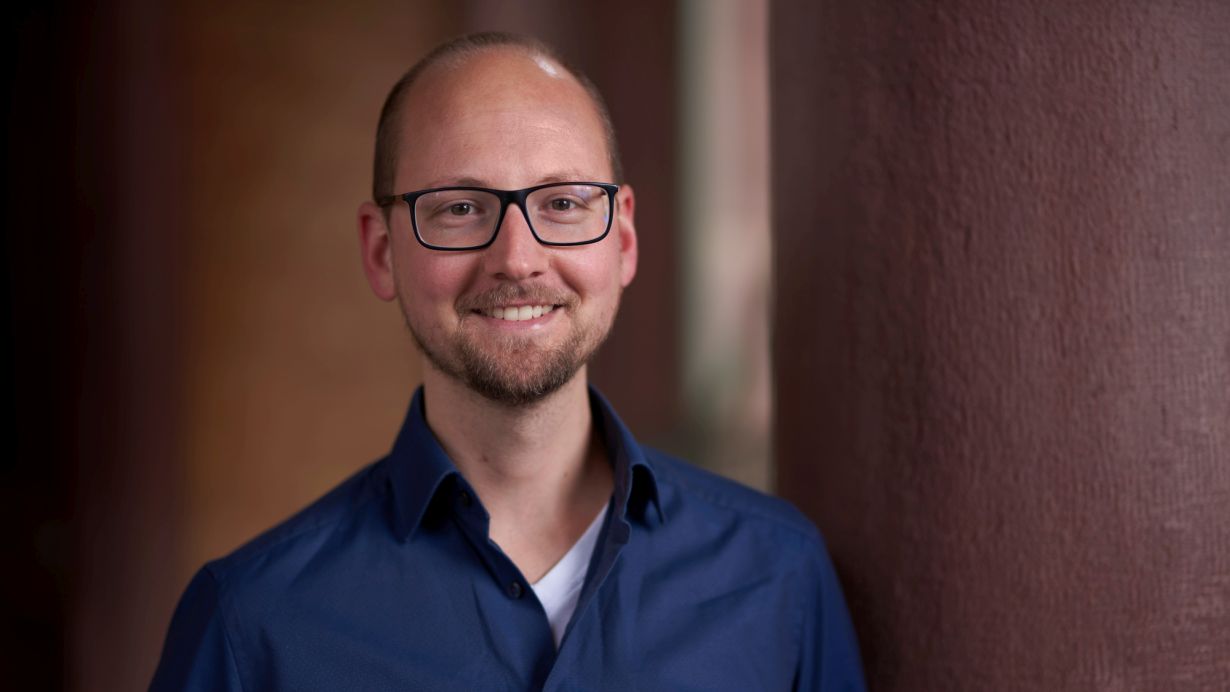Pascal Friederich, Tenure-track Professor at Karlsruhe Institute of Technology (KIT), is awarded the Heinz Maier-Leibnitz Prize of the German Research Foundation (DFG). The prize in the amount of EUR 20,000 is the most important recognition of early-career researchers in Germany. Pascal Friederich’s interdisciplinary work concentrates on the use of artificial intelligence for the simulation of materials, virtual materials design, and autonomous experimental platforms for automatic materials recognition.
“Requirements to be met by new, highly performing materials – may it be for efficient energy storage systems or for applications in medicine – are further increasing. At the same time, development times have to be shortened. Tenure-track Professor Pascal Friederich takes on this challenge and perfectly combines machine learning methods with materials sciences,” says the President of KIT, Professor Holger Hanselka. “The Leibnitz Prize is a great recognition of his outstanding work. We are proud and very happy!”
DFG awards the Heinz Maier-Leibnitz Prize to early-career researchers in recognition of their outstanding achievements. The prize in the amount of EUR 20,000 is supposed to assist the researchers in furthering their scientific careers. In 2022, the Leibnitz Prize is awarded to ten researchers. It is named after physicist Professor Heinz Maier-Leibnitz, DFG President from 1974 to 1979.
Increasing Demand for High-performance Materials
Pascal Friederich is Tenure-track Professor at KIT’s Institute of Theoretical Informatics (ITI) and associated group leader at the Institute of Nanotechnology (INT). He heads the research group AiMat (Artificial Intelligence for Materials Sciences) for data-based prognosis of materials properties, computer-based materials design, use of machine learning methods to simulate materials on the atomic scale, and direct combination of artificial intelligence methods with laboratory experiments. In view of the increasing demand for highly performing materials and the large range of applications, these topics are gaining importance.
After he received his bachelor’s and master’s degrees in physics at KIT, Pascal Friederich, within the framework of his doctorate at KIT, developed a new method to compute materials properties of organic semiconductors. This will enable the design of novel organic semiconductors. He conducted research at Georgia Institute of Technology / USA and as a Marie Curie Fellow at Harvard University / USA and the University of Toronto / Canada, where he worked on the development of machine learning methods for various disciplines. Friederich is author of numerous publications in renowned scientific journals.
About Pascal Friederich’s Research:
Einsatz Künstlicher Intelligenz bei der Entwicklung metall-organischer Gerüstverbindungen (use of artificial intelligence for the development of metal-organic frameworks, KIT News relating to a publication in Angewandte Chemie): https://www.kit.edu/kit/30310.php (in German)
Machine Learning for Faster and More Accurate Simulations of Materials (KIT Press Release relating to a publication in Nature Materials): https://www.kit.edu/kit/english/pi_2021_049_machine-learning-speeds-up-simulations-in-material-science.php
In close partnership with society, KIT develops solutions for urgent challenges – from climate change, energy transition and sustainable use of natural resources to artificial intelligence, sovereignty and an aging population. As The University in the Helmholtz Association, KIT unites scientific excellence from insight to application-driven research under one roof – and is thus in a unique position to drive this transformation. As a University of Excellence, KIT offers its more than 10,000 employees and 22,800 students outstanding opportunities to shape a sustainable and resilient future. KIT – Science for Impact.

